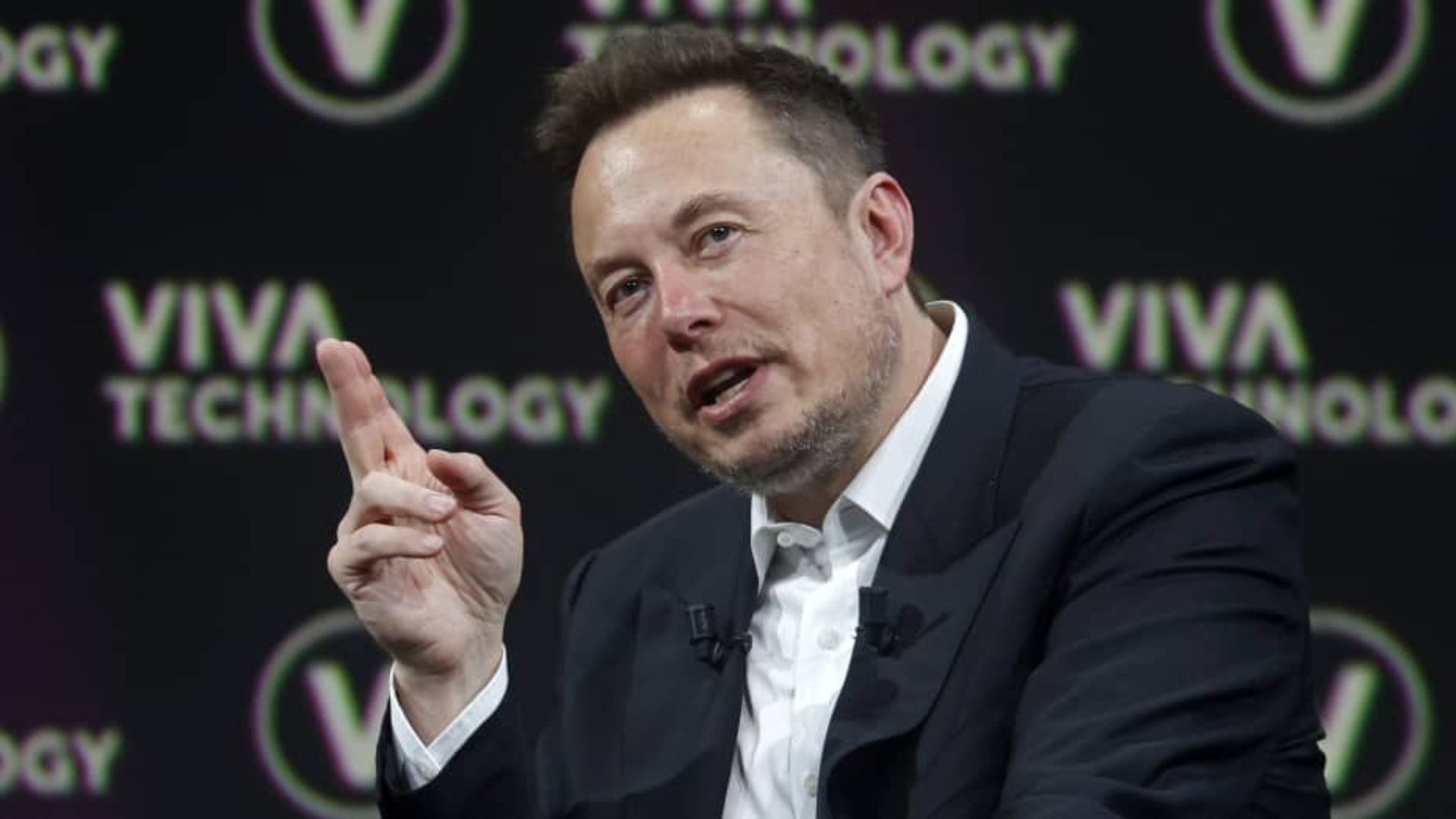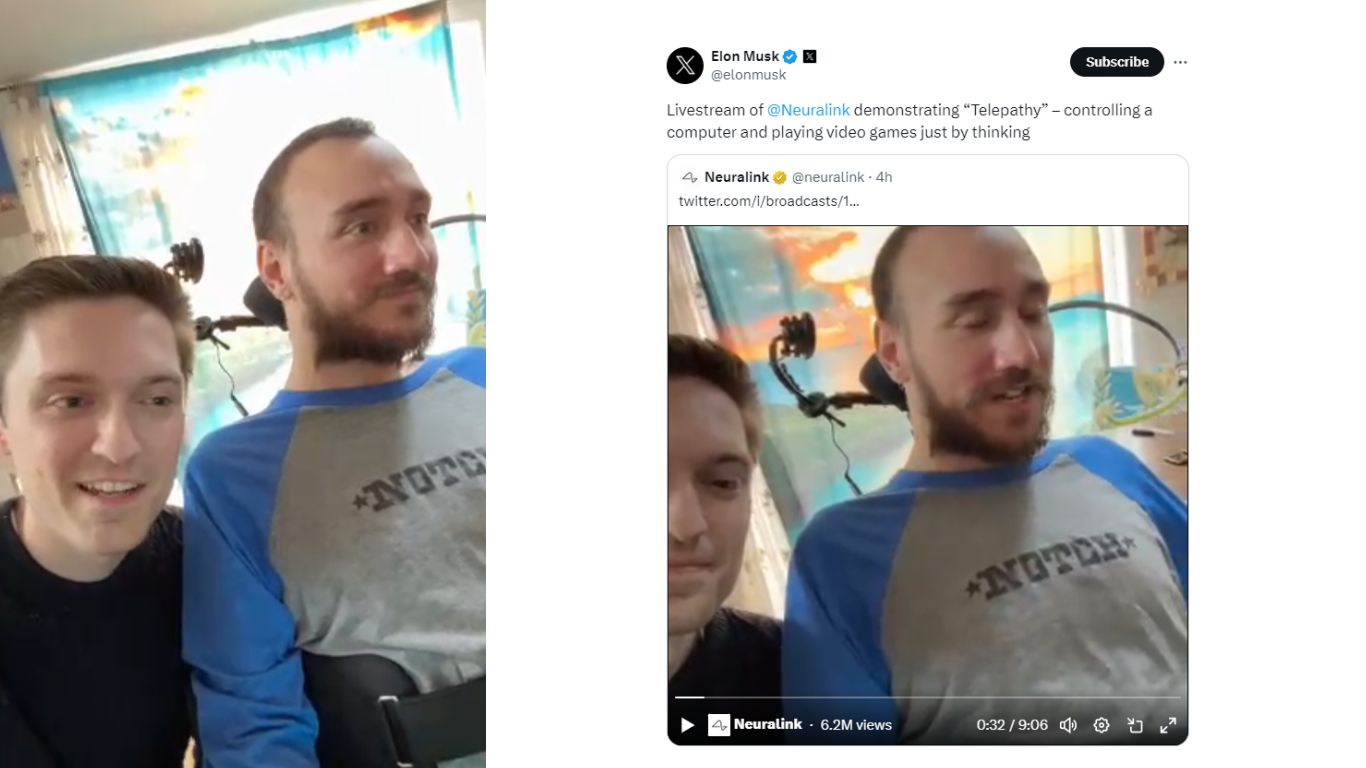Elon Musk’s brain technology venture, Neuralink Corp., made headlines with a groundbreaking live-streamed update showcasing its first brain implant patient, who successfully played video games and online chess using only his mind.
Neuralink, a brain technology startup founded by Musk, specializes in developing implants that enable individuals to control computers through their thoughts. The company’s pioneering implant technology has the potential to transform the lives of individuals with severe physical limitations, such as cervical spinal cord impairment or quadriplegia.
During the livestream, Noland Arbaugh, a quadriplegic patient, demonstrated remarkable proficiency in gaming, using his mind to navigate virtual environments and play games like Civilization VI. Arbaugh expressed his awe at the newfound capabilities, stating, “It has already changed my life.” Despite sustaining a spinal cord injury eight years ago, Arbaugh underwent a successful Neuralink procedure in January, which he described as “super easy.”
Neuralink’s implant boasts an impressive array of electrodes, distinguishing it from other brain-computer interface devices currently available. This extensive electrode coverage hints at its potential for diverse applications in the future. Notably, the Neuralink device operates wirelessly, eliminating the need for cumbersome external connections.
In a tantalizing post on Musk’s social platform X, the tech mogul hinted at the device’s potential to restore vision, suggesting that “Blindsight” could be the next breakthrough after “Telepathy,” the implant designed for paralyzed patients.
While Neuralink’s achievement marks a significant milestone in the realm of brain-computer interfaces, experts caution that similar demonstrations have been previously showcased by other research institutions and hospitals. Nonetheless, the success of Arbaugh’s interaction with the computer signifies a promising starting point for Neuralink’s endeavors.
Arbaugh’s journey, from his tragic accident to his remarkable engagement with cutting-edge technology, serves as a testament to the transformative potential of innovation in improving accessibility and enhancing quality of life for individuals with disabilities. As Neuralink continues to refine its technology, the prospect of a future where mind-controlled devices empower individuals with disabilities grows increasingly tangible.




















